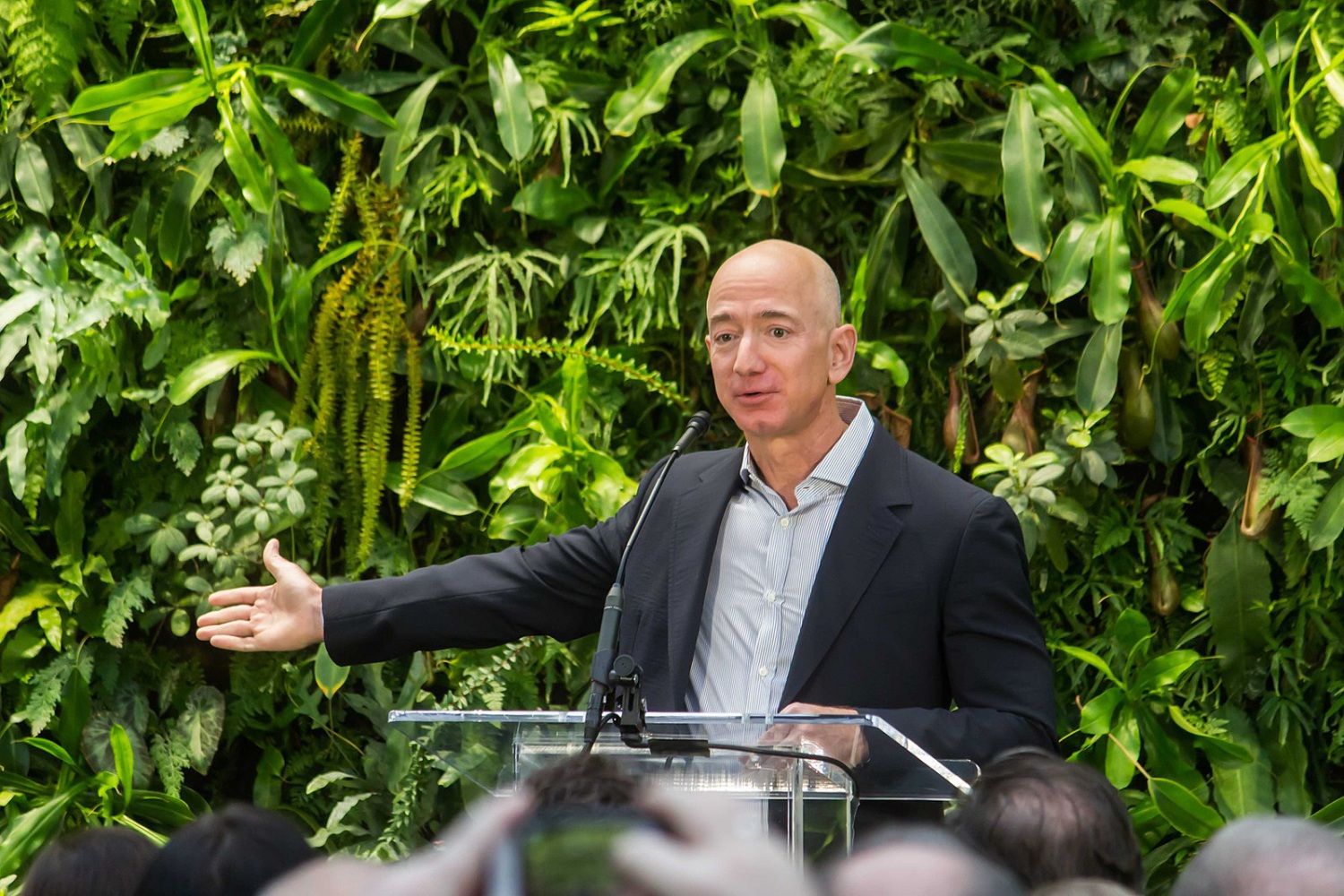Press releases
Then what, Bezos?
Media Contact
Cory Combs
Director of Media Relations

Photo credit: Seattle City Council/ Attribution 2.0 Generic (CC BY 2.0)
The world’s richest man just made a significant foray into both political giving and philanthropy. In the span of a few weeks, Jeff Bezos has committed $10 million to a cross-partisan political action committee working to elect military veterans who have pledged to put “principles before politics,” and $2 billion to create his Day One Fund to combat homelessness and boost early-childhood education.
These are noble moves. But there’s another piece of the puzzle I’d encourage him to consider: transforming the political system itself. Our political system is broken, and it is the source of much of the inequality and dysfunction he’s trying to cure.
On the inequality front, just take the study by professors Martin Gilens (Princeton University) and Benjamin Page (Northwestern University), in which they conclude: “Economic elites and interest groups can shape U.S. government policy — but Americans who are less well off have essentially no influence over what their government does.” Or, more simply put, take the words of former Republican Senator Bob Dole: “There is no poor people’s political action committee.”
On the political-dysfunction front, what will the veterans Bezos is funding find when they get to Capitol Hill? Lots of other good people, like them, who are routinely chewed up and demoralized by profound systems failures. As veteran Washington observer David Hawkings recently wrote in Roll Call: “Thirty years covering Congress leave me totally convinced the institution is more badly broken today than at any other point in my career.” Hawkings then describes why it’s so broken with five Ms: money (endless fundraising by politicians); maps (gerrymandering); media (tribal channels of information); mingling (the lack thereof across party lines); and masochism (politicians advancing a negative narrative about Washington and Congress).” From a policy-making perspective, it’s hard to do much about the masochism piece. But the other Ms are ones that are largely solvable with common-sense policies and congressional rules.
Congress is like a corporation that can’t retain good talent, and can’t turn itself around just by hiring a few new people. Restructuring and reforming the corporation — or institution — has to be the focus.
That’s why I’d encourage Bezos, and so many others like him, to start investing in groups that are working to fix the political system. Like mine. Yes, that’s self serving. But the fact is that our republic will not naturally restore itself. The last 30 years are a dark testament to that fact. It takes non-profit groups, working with members of Congress from both parties, to support and fuel the restoration process.
And now is the time to do so. The public is more tuned in to these issues of political dysfunction than anytime in my lifetime. This moment is feeling a lot like the years that preceded the post-Nixon reform era, in which 14 major pieces of legislation were passed in the matter of a few years.
In anticipation of the reform wave we believe is building, we at Issue One are gearing up a bold “campaign to fix the system” with dozens of politically diverse groups. As we do, we will be leaning on the 200 former members of Congress (roughly half Republican, half Democratic) we’ve recruited, along with the bipartisan Reformers Caucus in the House.
Bezos is clearly thinking strategically about his philanthropy. He and his family can make an even more enduring impact if they make a serious investment in repairing the very system that makes it harder to solve the problems they hope to address.
Issues: Democracy Community, Philanthropy
